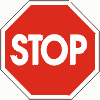AVIVA-Berlin >
Public Affairs
AVIVA-BERLIN.de im Februar 2026 -
Beitrag vom 25.01.2011

South Africa - Corrective Rape, a Hate-Crime. Sign the petition
AVIVA-Redaktion
Millicent Gaika was bound, beaten, strangled, tortured and repeatedly raped for five hours by a man who crowed that he was "curing" her of her lesbianism. She barely survived, but she is not alone
... - this vicious crime is recurrent in South Africa, where lesbians live in terror of attack. But no one has ever been convicted of "corrective rape". Sign the petition and share it with everyone - Avaaz, a global web movement, is initiating this campaign and will deliver the petition to the South African government with their partners in Cape Town.
Amazingly, from a tiny Cape Town safehouse a few brave activists are risking their lives to ensure that MillicentôÇs case sparks change. Their appeal to the Minister of Justice has exploded to over 130.000 signatures, forcing him to respond on national television.
LetôÇs shine a light on this horror from all corners of the world - if enough join in to amplify this campaign, we can reach not only the Minister of Justice but also President Zuma, who is ultimately responsible to uphold constitutional rights. LetôÇs call on Zuma and the Minister of Justice to publicly condemn "corrective rape", criminalise hate crimes, and ensure immediate enforcement, public education and protection for survivors.
South Africa, often called the Rainbow Nation, is revered globally for its post-apartheid efforts to protect against discrimination. It was the first country to constitutionally protect citizens from discrimination based on sexuality. But in Cape Town alone, the local organization Luleki Sizwe has recorded more than one "corrective rape" per day, and impunity reigns.
"Corrective rape" is based on the outrageous and utterly false notion that a lesbian woman can be raped to "make her straight", but this heinous act is not even classified as a hate crime in South Africa. The victims are often black, poor, lesbian women, and profoundly marginalised. But even the 2008 gang rape and murder of Eudy Simelane, the national hero and former star of the South Africa womenôÇs national football team, did not turn the tide. And just last week Minister Radebe insisted that motive is irrelevant in crimes like "corrective rape.
South Africa is the rape capital of the world. A South African girl born today is more likely to be raped than she is to learn to read. Astoundingly, one quarter of South African girls are raped before turning 16. This has many roots: masculine entitlement (62 per cent of boys over 11 believe that forcing someone to have sex is not an act of violence), poverty, crammed settlements, unemployed and disenfranchised men, community acceptance and, for the few cases that are courageously reported to authorities, a dismal police response and lax sentencing.
This is a human catastrophe. But Luleki Sizwe and partners at Change.org have opened a small window of hope in the fight against it. Avaaz: "If the whole world weighs in now, we could get justice for Millicent and national action to end ôÇcorrective rapeôÇ."
This is ultimately a battle with poverty, patriarchy, and homophobia. Ending the tide of rape will require bold leadership and concerted action to spearhead transformative change in South Africa and across the continent. President Zuma is a Zulu traditionalist, who has himself stood trial for rape. But he condemned the arrest of a gay couple in Malawi last year, and, after massive national and international civic pressure, South Africa finally approved a UN resolution opposing extra-judicial killing in relation to sexual orientation.
If enough of us join this global call for action, we could push Zuma to speak out, drive much-needed government action, and begin a national conversation that could fundamentally shift public attitudes toward rape and homophobia in South Africa. Sign on and spread the word: https://secure.avaaz.org
Avaaz: "A case like MillicentôÇs makes it easy to lose hope. But when citizens come together with one voice, we can succeed in shifting fundamentally unjust, but deeply ingrained practices and norms. Last year, in Uganda, we succeeded in building such a massive wave of public pressure that the government was forced to shelve legislation that would have sentenced gay Ugandans to death. And it was global pressure in support of bold national activists that pushed South African leaders to address the AIDS crisis that was engulfing their country. LetôÇs join together and speak out for a world where each and every human being can live without fear of abuse."
Sources and more information:
Blog of Luleki Sizwe, South African organization leading the call to their government to stop "corrective rape", and provides support to victims: http://lulekisizwe.wordpress.com
Minister of Justice RadebeôÇs nationally televised interview (South African Broadcasting Corporation): www.youtube.com
Protest against "corrective rape" (The Sowetan): www.sowetanlive.co.za/news
Petition launched on Change.org by activists from Luleki Sizwe: humanrights.change.org/petitions
"Understanding menôÇs health and use of violence: interface of rape and HIV in South Africa" (Medical Research Council as pdf)
"Preventing Rape and Violence in South Africa" (Medical Research Council as pdf)
Unterstû¥tzen Sie das Avaaz Netzwerk! Die InitiatorInnen finanzieren sich ausschlieûlich durch Spenden und akzeptieren kein Geld von Regierungen oder Konzernen. Spenden Sie hier: https://secure.avaaz.org
Avaaz.org ist ein 6,5 Millionen Menschen umfassendes, weltweites Kampagnennetzwerk das sich zum Ziel gesetzt hat, den Einfluss der Ansichten und Wertvorstellungen aller Menschen auf wichtige globale Entscheidungen durchzusetzen. ("Avaaz" bedeutet "Stimme" oder "Lied" in vielen Sprachen) Avaaz Mitglieder gibt es in jeder Nation der Erde, das Team verteilt sich û¥ber 13 LûÊnder und 4 Kontinente und arbeitet in 14 verschiedenen Sprachen. Erfahren Sie hier etwas û¥ber einige der grûÑûten Aktionen von Avaaz unter: www.avaaz.org/de
Weiterlesen auf AVIVA-Berlin:
Kampf gegen Vergewaltigung an Lesben in Sû¥dafrika wird unterstû¥tzt von der Hirschfeld-Eddy-Stiftung